📅 Upcoming Gatherings
✨ What if there was a place where your whole self was not only welcome but celebrated?
Heart Center is a loving community where we encourage you to share your challenges and your gifts with total freedom and authenticity. 💗 We are a sanctuary where love, authenticity, and community open the way for transformation. Here, you don’t have to hide, perform, or carry the weight alone. You can bring your whole self — the raw and the radiant — and discover what it feels like to be fully seen and embraced.
Through Tao wisdom, higher-dimensional healing, and authentic community connection, we help you transform wounds into wisdom, pain into purpose, and isolation into belonging.
Our vision is simple yet powerful: a world where every soul connects, every heart opens, and love leads the way. 🌍✨ Together, we are creating a future rooted in compassion, authenticity, and the shared awakening of the human spirit.
"Remove blockages to your authentic flow to achieve success in every area of life."
- Winnie Chan Wang
✨ Meet Your Guides
Helping you release your traumas and achieve your soul purpose with compassion and respect.
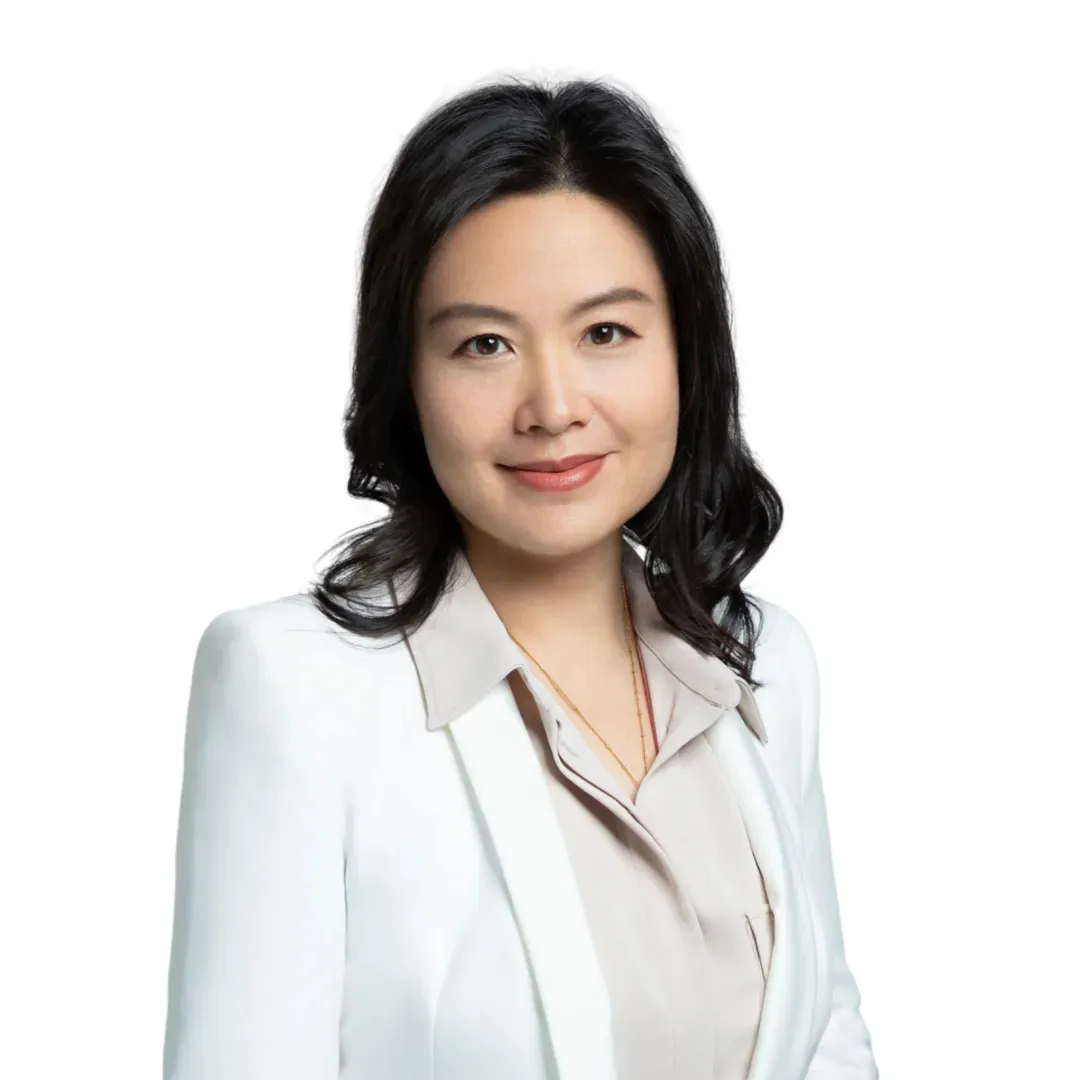
Winnie Chan Wang
Integrative Wellness Practitioner & Coach
Winnie is a Traditional Chinese Medicine doctor, licensed acupuncturist, and co-founder of Heart Center. She carries the wisdom of Tao practices and higher-dimensional healing with deep compassion and grounded presence. Through her gentle strength and love-filled voice, Winnie helps others find stillness, open their hearts, and experience profound transformation in body, mind, and soul.
(Acupuncture, Tao Healing, Heart-Based Guidance)
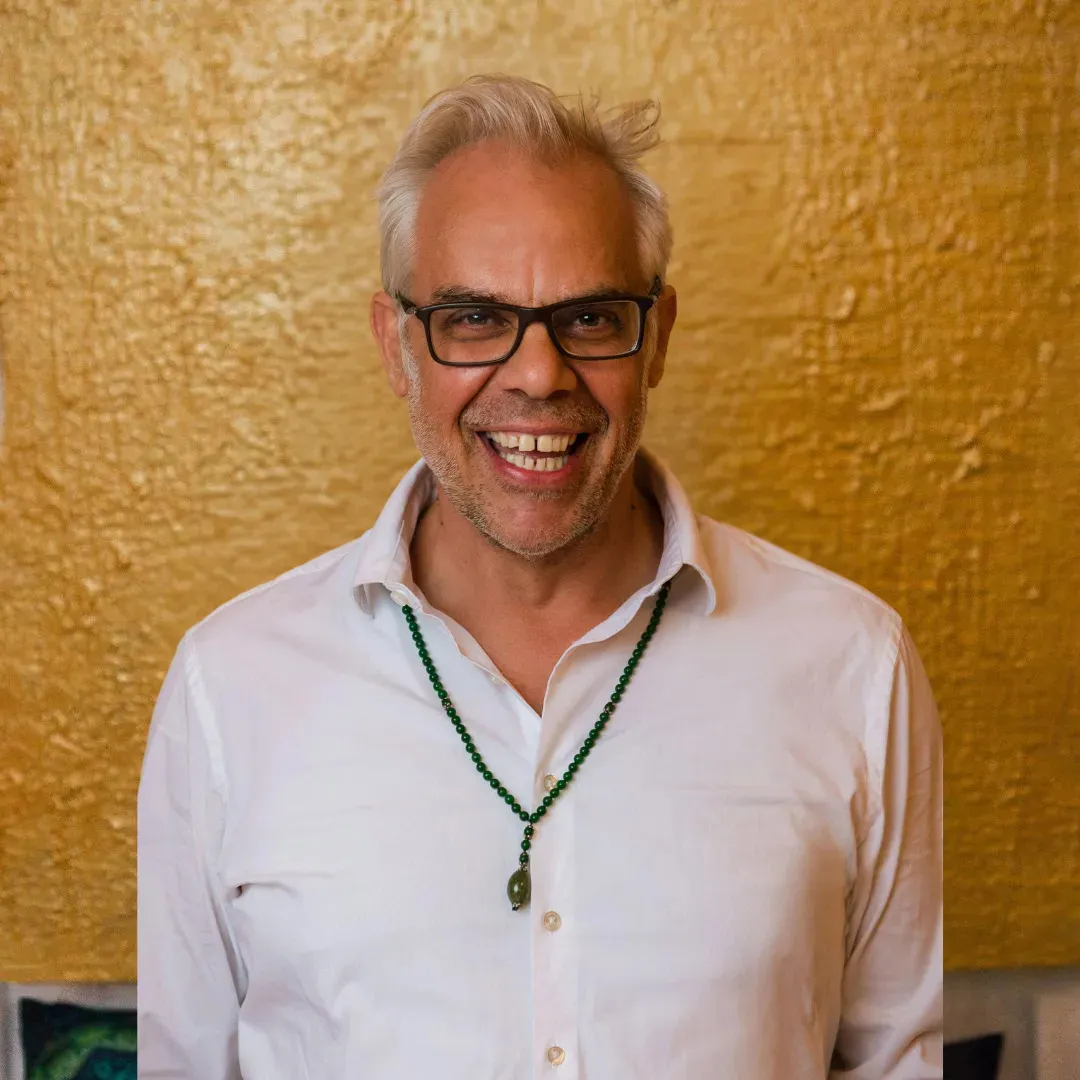
Jonathan Jay Dubois
Leadership & Relationship Coach
Jay (Jonathan Jay Dubois, PhD) is an anthropologist, Tao practitioner, and co-founder of Heart Center. He weaves relational coherence, sacred geometry, and Tao healing into practical guidance for modern life. Jay’s presence invites freedom, authenticity, and a return to Source — helping people transform stress into harmony and step into their true, unshakable power.
(Gold Coin Meditations, Relational Coherence, Spiritual Coaching)
🌟 Work With Us 1-on-1
In addition to our community gatherings, we also serve private clients. Each session is a sacred space to receive personalized guidance, healing, and transformation.
Heart Center Connection
Do you envision a world where healing is accessible to every soul—where each person, no matter their background, identity, or journey, is embraced with love, authenticity, and belonging?
At Heart Center, we honor the fullness of each human being—their ancestry, their dreams, their struggles, and their light—and we believe that through love and conscious transformation, we rise into who we were always meant to become.
We invite you to our free community gathering every Wednesday at 7 PM, to connect, heal, and grow together in the Tao Light Field.
Just as economics teaches us about supply and demand, our weekly gatherings bring balance and clarity into your life.
Release & Rejuvenate in the Tao Light Field
Are you ready to remove obstacles to success in all aspects of life, including health, relationships, finances and soul journey in the most sacred way?
Imagine who we are is Love and Light, but our truth is covered by dirt.
That is why we want to breathe in a higher dimension Tao Light Field carrying the source's most positive information to wash away the blockages.
Release and rejuvenate your being by breathing in the Ten Greatest Qualities
—Love, Forgiveness, Compassion, Light, Humility, Harmony, Flourishing, Gratitude, Service, and Enlightenment.
Experience the Tao Calligraphy Light Wall, a spiritual and energy portal to align yourself with the the highest vibrational field. ✨
Rooted in Love
Are you ready to return to the part of you that was never broken, only buried?
This sacred monthly gathering is an invitation to lay down what you’ve been carrying too long, and come back to love—real love, rooted love.
Through shamanic journeying, Tao Light Field healing, and heartfelt ceremony, you’ll release what no longer belongs, restore your nervous system, and reconnect with your soul’s deepest truth.
Held by Jay & Winnie in an intimate retreat home on sacred land, this is a space of safety, reverence, and transformation. ✨
Contact Us
Thank you for letting us know what your needs are.
Want to schedule a free discovery call? Schedule a Heart Connection call with Winnie or Jay.
Subscribe to our Newsletter
✨ About the Heart Center
At Heart Center, every part of you is welcome — your challenges, your dreams, your healing, and your light. 💗
We are a sanctuary where love, authenticity, and community open the way for transformation. Here, you don’t have to hide, perform, or carry the weight alone. You can bring your whole self — the raw and the radiant — and discover what it feels like to be fully seen and embraced.
Through Tao wisdom, higher-dimensional healing, and authentic community connection, we help you transform wounds into wisdom, pain into purpose, and isolation into belonging.
Our vision is simple yet powerful: a world where every soul connects, every heart opens, and love leads the way. 🌍✨ Together, we are creating a future rooted in compassion, authenticity, and the shared awakening of the human spirit.
💬 Stories of Transformation
Healing at Heart Center is lived and embodied.
Listen to members of our community share how Tao practices, sacred breathing, and authentic connection have touched their lives.
Jacqui Freeman
Heart Healed on Camera
Wendel McConnell
From Emotional Weight to Heartfelt Peace
A lovely gem of a space for connection and soulful support. Winnie is so knowledgeable so strongly tapped into her heart. She is authentically loving, and her intuition is on fire - she is SO quick to grasp and articulate deep insights about me and the people around her. I joined the community for the first time at a lunar new year event and also joined several of the Tao calligraphy sessions. The partnership with Jay beautifully balance the masculine and feminine form and energies. They each have profound insights and attunement that create a powerfully healing space that is accessible and inviting to All. It is a community service at the highest level.

★★★★★
Nicole Shumaker
VP at Trans Astronautica Corporation
Heart Center LA has given me hope & compassionate learning opportunities to push myself forward in my healing journey. Winnie Wang is amazing, full of bright light & extraordinary healing skills. After my 1st individual session, I walked out pain free with an open mindset of resiliency & hope. In only a few individual sessions I've shifted even more to an open heart with less fear in taking risks & understanding my pain. The group sessions at the HEART CENTER LA are oh so special & genuinely unique, while offering compassion & a collective unity. Love love love, thank you, thank you, thank you

★★★★★
Melea Balwan
Speech pathologist
The Heart Center is a place where I go to heal my heart, mind, body and soul. Winnie, Jay, and Howie are expert communicators and have brought so many wonderful people into this community that are supportive, authentic, and loving people. When I attend the Heart Center sessions, I know that I can communicate freely about any personal, physical, or relationship problem I am having in my life, and I will receive healing, support, and spiritual practices that feed my soul. Winnie and the team listen deeply and through chanting, tracing calligraphy and open discussion, the team determines ways to heal and bring spiritual growth to myself and others. Their methods have been extremely effective for me. When I first came to Winnie at the Heart Center, I was diagnosed with osteoporosis and my doctor wanted me to treat it with medication. After doing acupuncture sessions with Winnie and attending Heart Center sessions for 6 months, my numbers showed that I was no longer in the osteoporosis range but my bone quality was close to the “normal” range. Many people bring their illnesses and/or and stress related conditions to the sessions and I have found, and others in our sessions express the same, that the Heart Center sessions have greatly improved the quality of our lives. That’s why we keep coming back! The Heart Center teams' knowledge of Chinese Traditional medicine, Tao calligraphy tracing and Tao philosophy, shamanism, and the chakra system really enhances my experience at the Center. I have found that we don’t just talk about “symptoms", we actually discuss root causes of both societal and problems individuals are experiencing in their personal lives. Each week, an important spiritual topic is addressed and Winnie asks questions and listens so attentively until she determines what healing blessings she and Jay will deliver to the group, and how the group can work collectively to heal. Winnie heals with her medical intuition and prayer and sings beautiful blessings, Jay brings 3rd eye insights, and Howie chants and traces calligraphy. All these activities are so spiritually uplifting! I highly recommend attending these beautiful Heart Center healing sessions. They are a team of highly trained effective communicators and spiritual healers that work tirelessly to bring healing services to the community. I love being with the team and the community that attends these events. They have made a profound, positive impact on my life and for that, I am eternally grateful.

★★★★★
Pamela Von Eschen
High School Teacher
Frequently Asked Questions
What is the Ten Da?
Ten Da is the ten greatest attributes that represent who we truly are:
1) Greatest Love (Da Ai) = melts all blockages
2) Greatest Forgiveness (Da Kuan Shu) = brings inner joy and inner peace
3) Greatest Compassion (Da Ci Bei) = boosts energy, stamina, vitality and immunity
4) Greatest Light (Da Guang Ming) = transforms all life
5) Greatest Humility (Da Xian Bei) = heals and prevents ego
6) Greatest Harmony (Da He Xie) = key for success
7) Greatest Flourishing (Da Chang Sheng) = more resources to serve
8) Greatest Gratitude (Da Gan En) = key for progress
9) Greatest Service (Da Fu Wu) = purpose of life
10) Greatest Enlightenment (Da Yuan Man) = ultimate achievement of life
What we breathe is what we become, what we chant is what we become, what we trace is what we become.
The Ten Da Tao Calligraphy Light Wall is the vibrational field formed by all ten of the source's most positive information field.
What is a Tao Hands Blessing?
Tao Hands is an advanced healing technology that carries high-level information, energy, and matter from the 4th dimension.
These blessings are typically offered according to spiritual guidance during a private consult.
What is a Kuan Yin Lineage Holder Crown Chakra Blessing?
Kuan Yin, the Bodhisattva of Compassion, is revered and honored around the world for being “one who hears the cries of the world.” A Kuan Yin Lineage Holder (KYLH) is connected directly with the spiritual presence and power of Kuan Yin, the entire Kuan Yin Lineage, and with the Buddhas and Bodhisattvas of Da Bei Zhou. To receive a 1000 Hands 1000 Eyes Crown Chakra Blessing from a Kuan Yin Lineage Holder is truly a special honor.
Aren't blessings supposed to be free?
There is a spiritual cost that our practitioners must pay for the high-level blessings and transmissions they are uniquely authorized to offer. So even if you are gifted a free blessing, there is still a spiritual cost for the practitioner. This is universal law. For every action there is an equal and opposite reaction.
On top of the spiritual costs, practitioners must dedicate themselves to intensive self-purification practices that require an enormous investment of time, energy and resources. The purer their channel, the more positive information, energy, and matter they will be able to bring for healing and transformation.
By offering an honor fee for your spiritual healing, you are in fact honoring and showing appreciation to the spiritual world and Tao. This heartfelt expression of reverence and gratitude can in many ways amplify the healing you receive.
What is a Tao Light Transmission?
A Tao Light Transmission is created from the Source field of a Tao Calligraphy. Unlike a blessing, it is a permanent transmission of light that will remain with the recipient indefinitely. It can be created for the physical body, emotional body, energy body, mental body, spiritual body, relationships, finances and business, and more. Chanting and tracing practice with a Tao Light Transmission is the way to fully activate it and accelerate your healing and transformation.
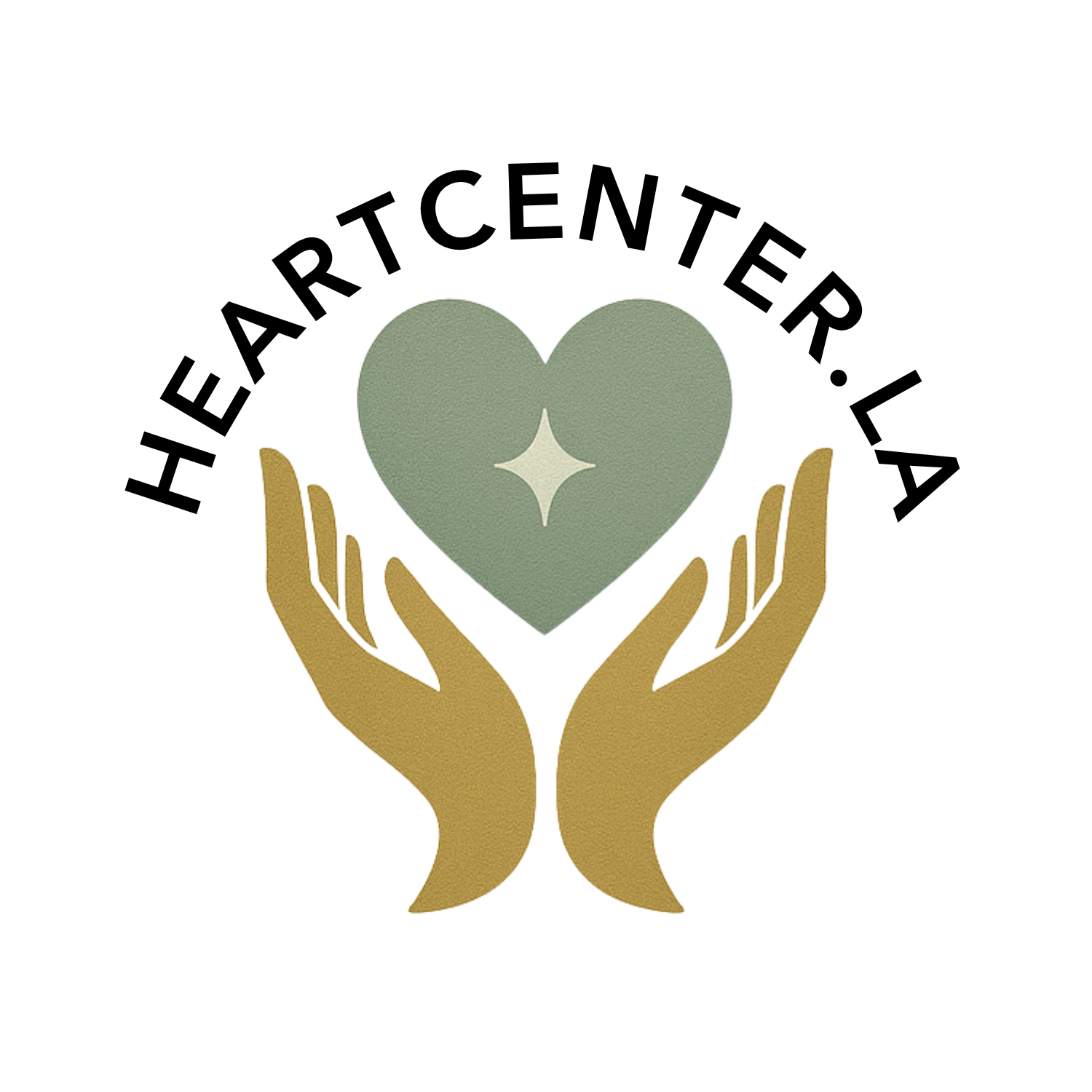
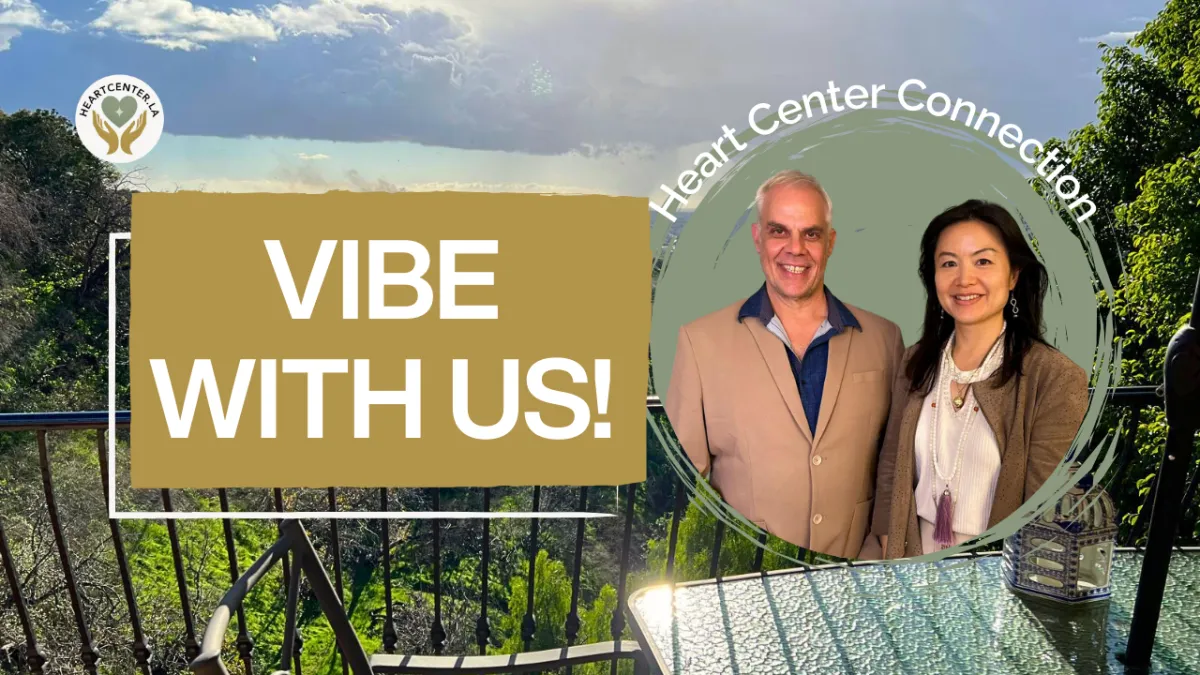
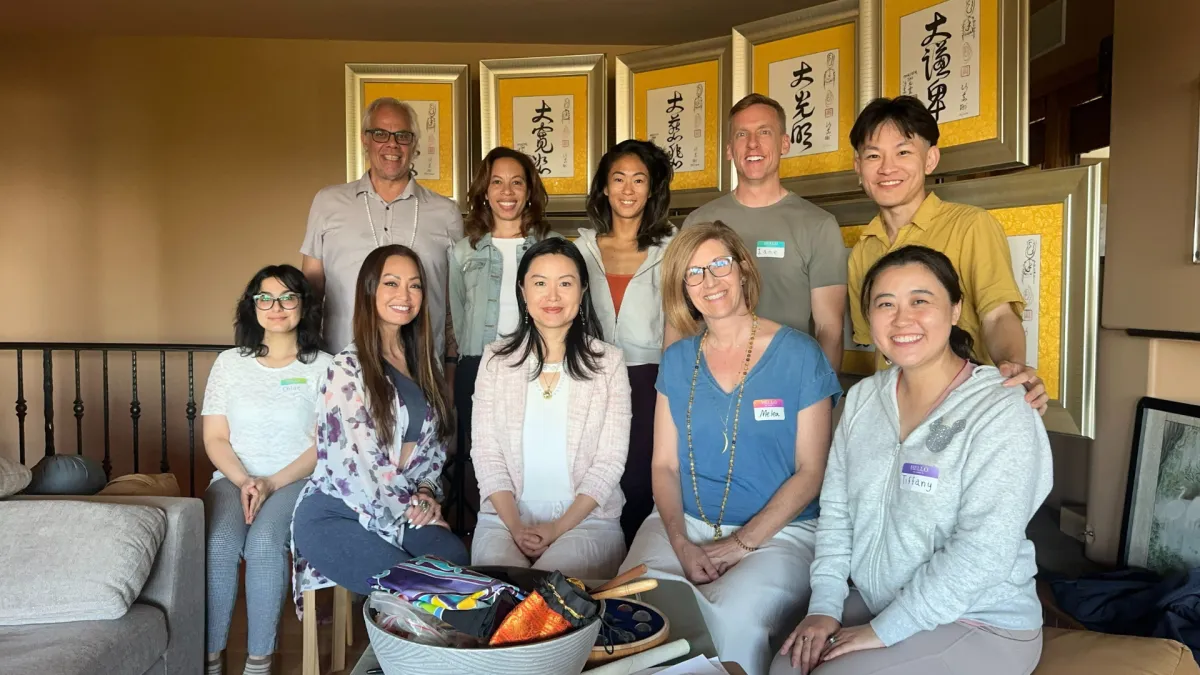





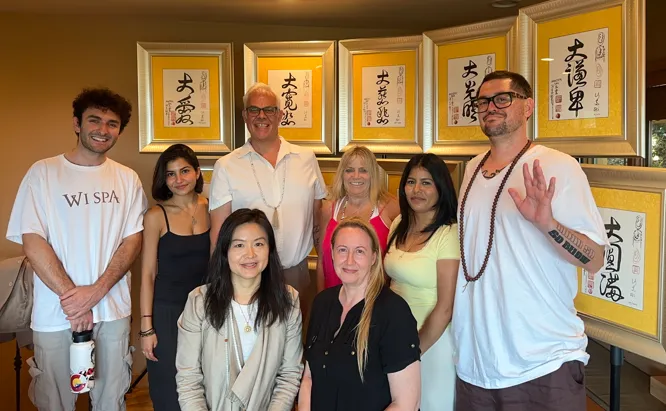
Facebook
Instagram
Youtube